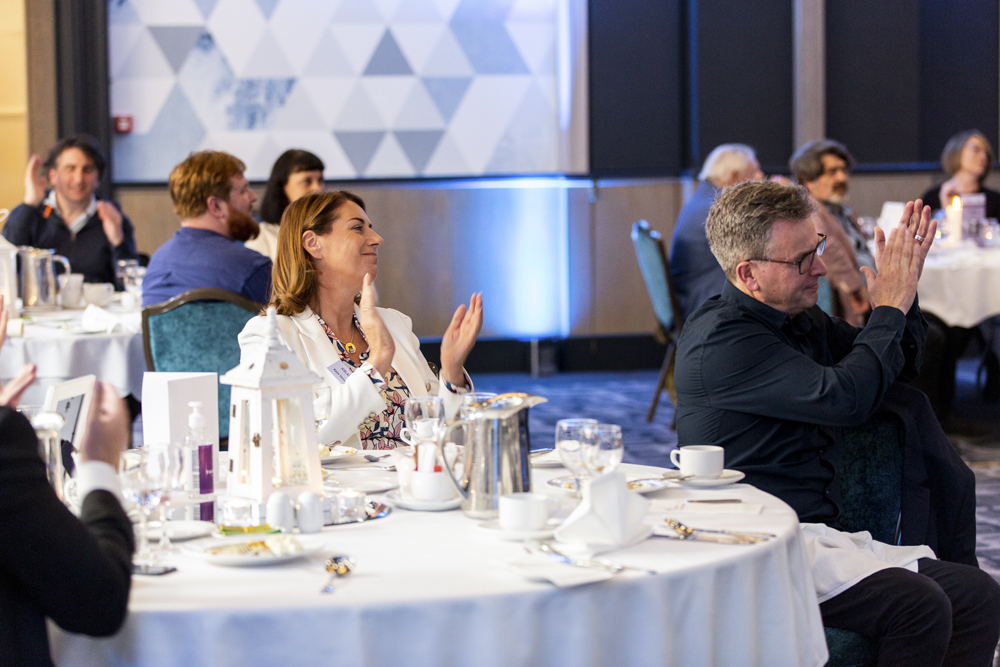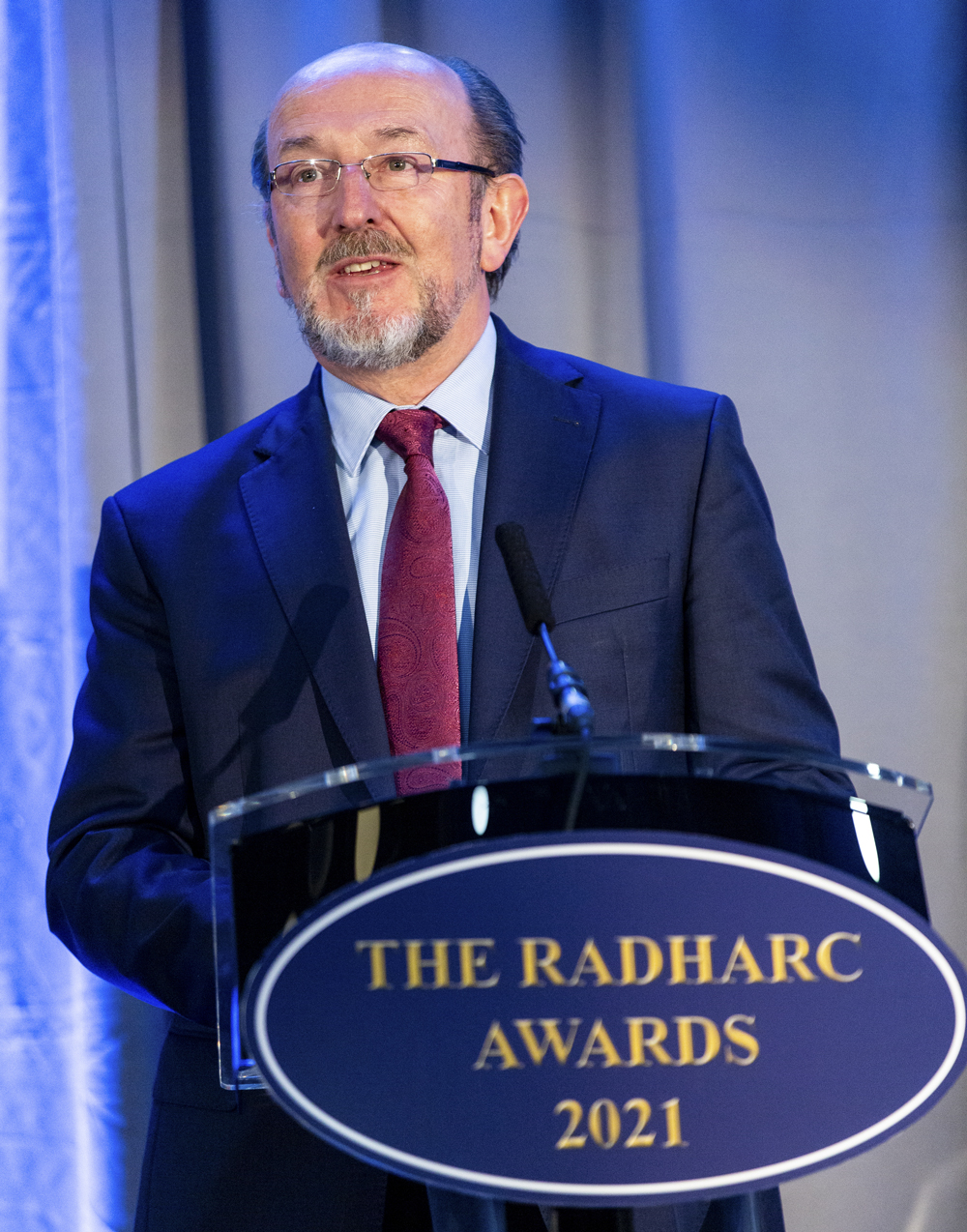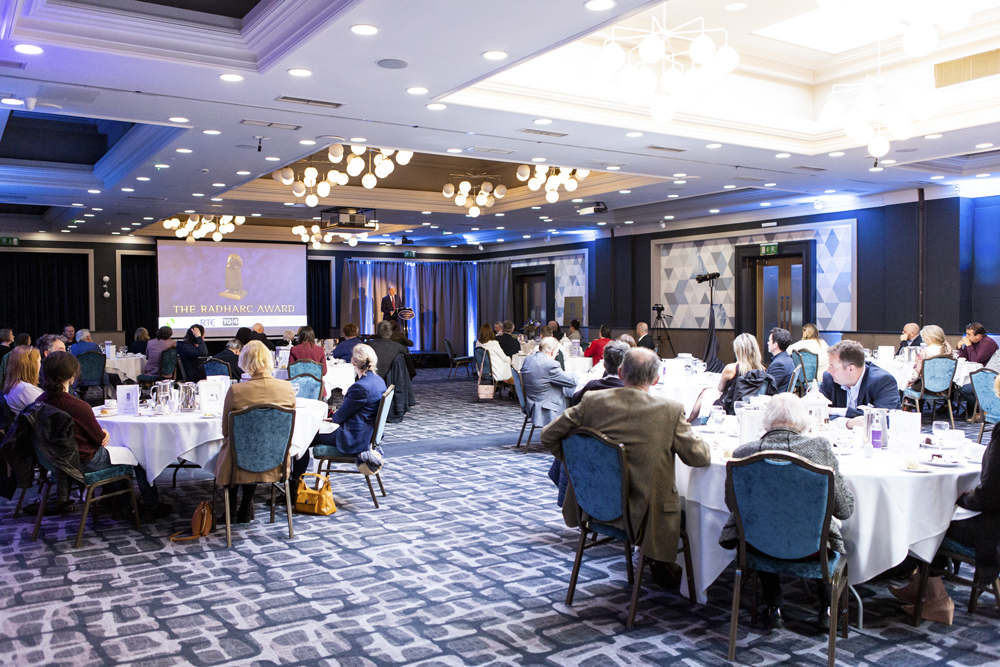
SELECTED EDITS FROM TRANSCRIPT
PROFESSOR BRIAN MacCRAITH REMARKS AT THE RADHARC AWARDS
The Talbot Hotel, Stillorgan
21 October 2021
“So I just wanted to say that Radharc was part of me growing up and I want to applaud the work of the Radharc Trust in working to promote that very important legacy of the production unit, through initiatives such as this, the Radharc Awards, and the important work you’re doing in archiving as well.”
“What made Radharc special? I suppose, firstly that it was clerics, later to be joined by lay people. But it was Ireland’s first independent TV production unit and I think they really were pioneering in that regard. Over 400 documentary films around issues of faith and values and social Justice, so very much ahead of their time – that was one thing. But secondly and perhaps more importantly, all of those programs, and I do remember this, were noted for challenging the cosy Catholic conservatism of the 1960s and 70s Ireland. And, for presenting a very radical perspective on the issues of the developing world. As I say, going back to when I first started looking at these programmes, I was a teenager and I was influenced. And I knew I was seeing something different and it was Catholic priests telling interesting stories and telling them well – but challenging orthodoxy. So telling interesting stories well and challenging orthodoxy – and I think that’s a very good segue for me in talking about the work of the future of Media Commission and of the significant roles of media.”
“Public service aims can be delivered on by all elements of the media sector itself. But all of these elements have the potential and indeed their responsibility to contribute strongly and deeply to the civic life, culture and the democratic life of a nation. A healthy democracy is closely linked to a flourishing public service media system. High quality public service content results in better informed citizens, better decision making, higher levels of social cohesion and tolerance, and better political information environments. In Ireland, broadcasting, print and online media including public, commercial, private and community organizations – all of these – each contribute in significant ways to those public service objectives. And it’s important to emphasize that.”
“But the public and most importantly the State also have serious choices to make about how they wish to support the media. How they wish to value the media in Ireland in support of the broader societal wellbeing, in support of democracy in Ireland itself. We don’t need to look too far to what the corollaries illustrate if one goes in the opposite direction.”
“It is critically important that we as a nation, that this State, values our media system. But in addition to the State valuing the media sector, I believe the media sector itself needs to embrace important values. And in addition to the highest quality journalistic values – that is very important – that additional values come through. For example, commitments to the principles of equality, diversity and inclusion. A broad emphasis on innovation and creativity, especially in the context of digital transformation. And our recognition of the sector’s responsibility to one the biggest challenges facing the globe and that is the area of environmental sustainability and climate change. So I think it is reasonable if we expect the State to support the broader sector itself, that the sector itself should respond by embracing the highest quality values in that regard.”
“I hope that the Commission’s report will prove not only to be an important information resource but most importantly, a key catalyst in the transformation of the media sector in Ireland over the coming decades.”



